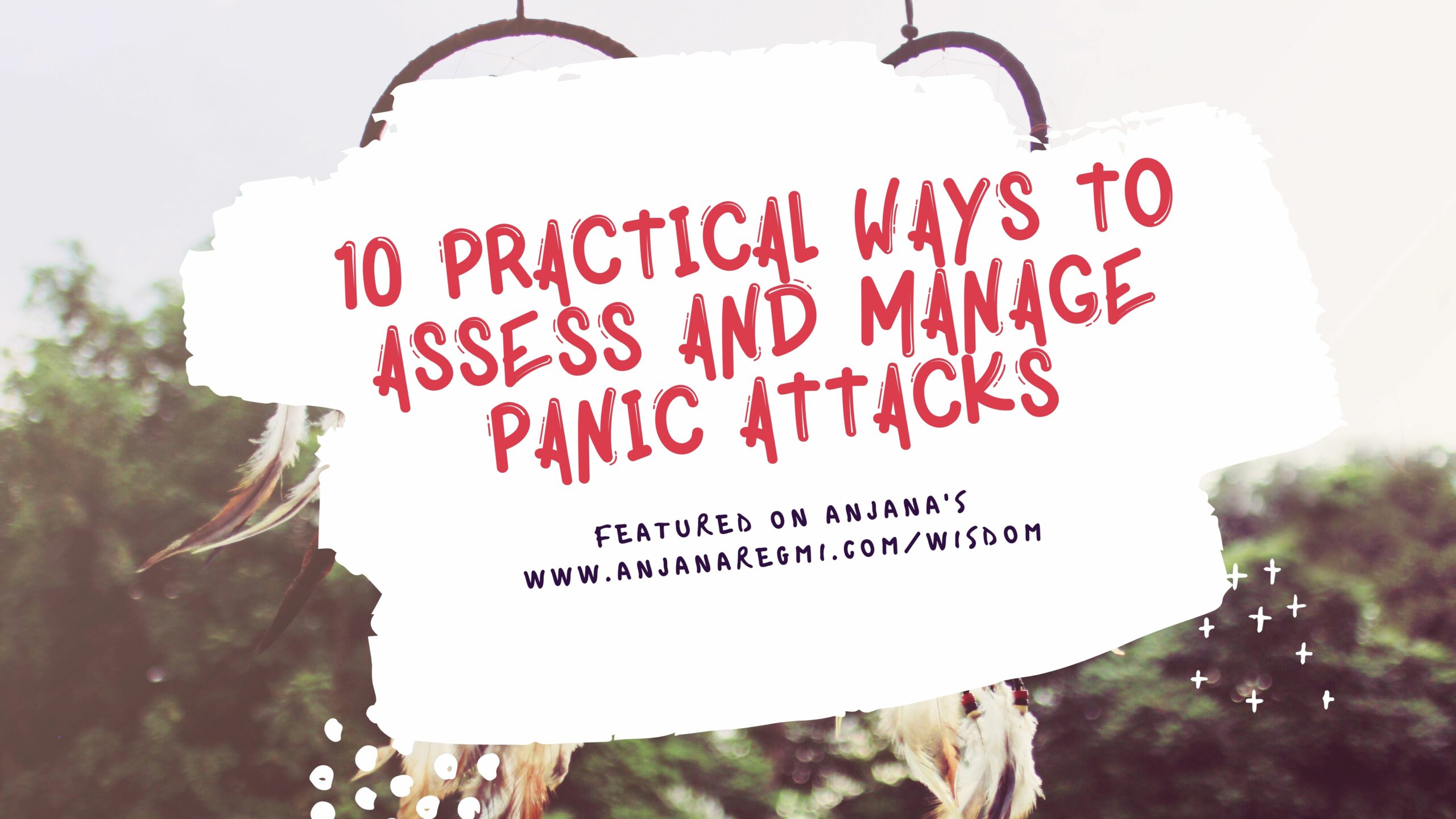Have you ever experienced a panic attack or know of someone who gets them?
A panic attack can be terrifying feeling.
Here’s my personal experience and practical ways to assess and manage panic attacks.
It is a complex feeling of experiencing a lot of symptoms all at once that makes it intense and severely challenging to explain or share the feeling. About 5% of Australians and 2-3% of Americans experience panic attacks in their lifetime. It is twice as common in women than in men and usually begins in late 20s or in mid-life.[1]
Those that suffer panic attacks often feel as if they’re going to die.
The most difficult experience is having attacks while you’re asleep, also known as nocturnal panic attacks. I found this more frightening because of a fear of feeling helplessness (thinking a worse could happen).
In my personal experience, while highly unpleasant and harmless, a panic attack felt like something I created on my mind. It is a sudden fear of an unknown that peaks, slows down and could peak again. Every time I had some thoughts that something was going to go wrong, or I was going to have the pain again I would start getting panic attacks.
I would feel completely helpless not knowing how to share and comprehend what I was feeling at that moment in time. Fortunately, in my case because of my husband’s medical background, he was able to know what was happening with me and was able to provide the support and assistance to calm me down.
By that time, I had been meditating for quite a few years.
Controlling panic attacks is a lot about controlling your thought processes and knowing what to do when you know or feel that you are going to get the attack, during the attack and after the attack.
So, you also have the power to lessen and eliminate the attack.
If panic attacks are controlling your life, you can regain that control.
Some of the factors associated with the causes of panic attacks are:
Excessive controlling and restrictive parenting styles
Family history with panic and anxiety attacks
Experience of violence in family or traumatic childhood
Severe childhood illness
‘The Looming’ Cognitive Style – overthinking the negative outcomes

While panic attacks are believed to have some non-medical history. Other reasons can include gastroesophageal reflux disease (GERD) (applicable in my case), irritable bowel syndrome (IBS), and sleep disorders.
10 Symptoms of panic attacks - from personal experience:
Rapid heartbeat and palpitation
Sweating
Breathlessness
Trembling or shaking
Uncontrolled thoughts
Feelings of unreality and fear of dying
Feeling a detachment between brain and body and losing control
Lightheadedness or dizziness and even fainting
Chest pain and discomfort
Abdominal distress

Here're the top 10 ways to manage panic attacks quickly and effectively:
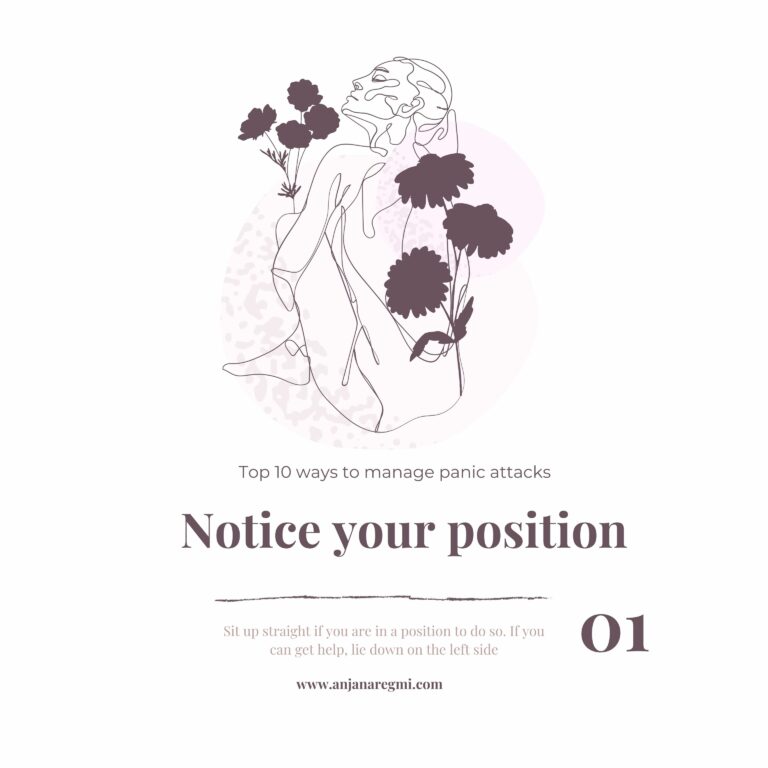
www.anjanaregmi.com
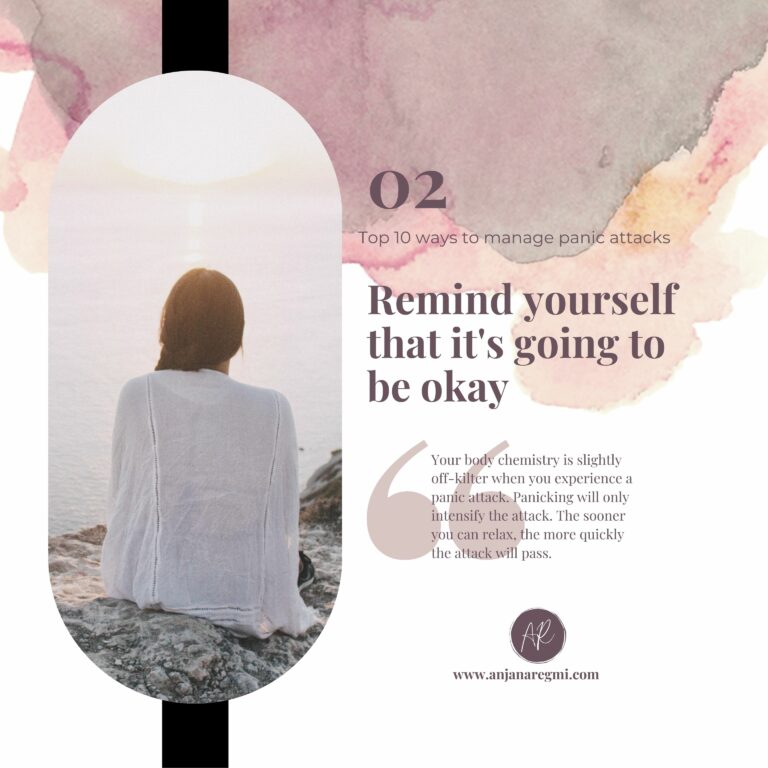
www.anjanaregmi.com
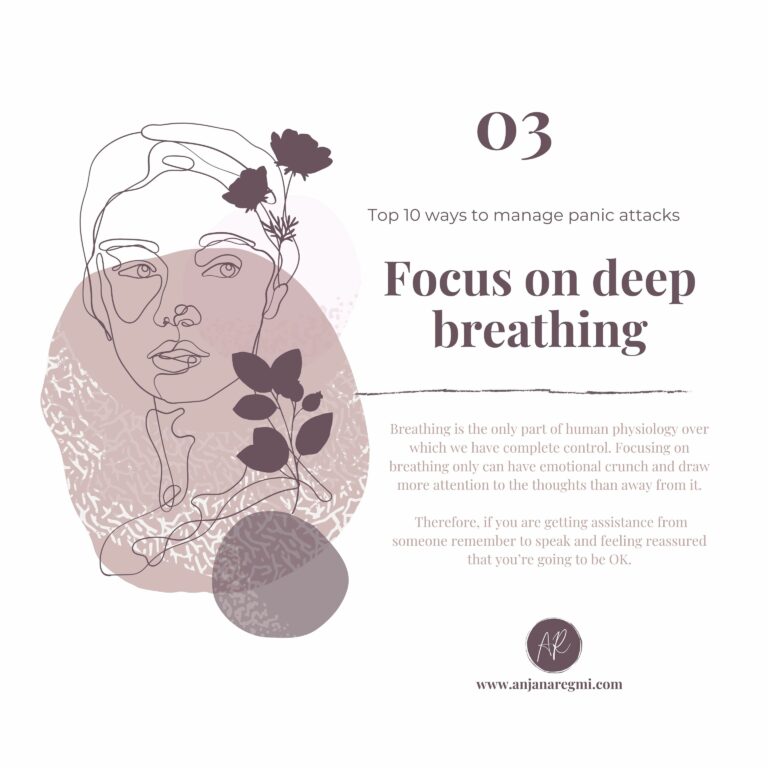
www.anjanaregmi.com
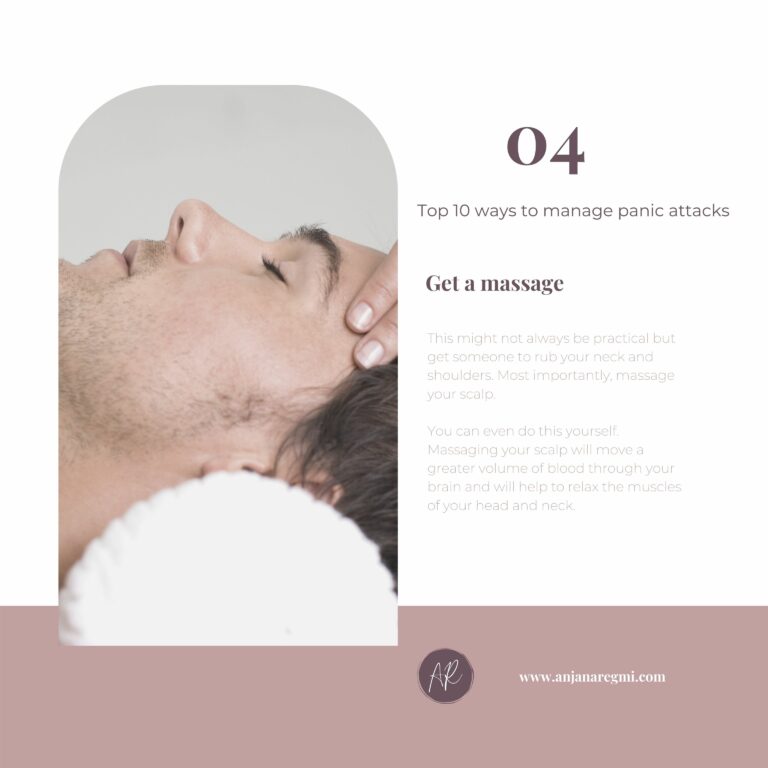
www.anjanaregmi.com
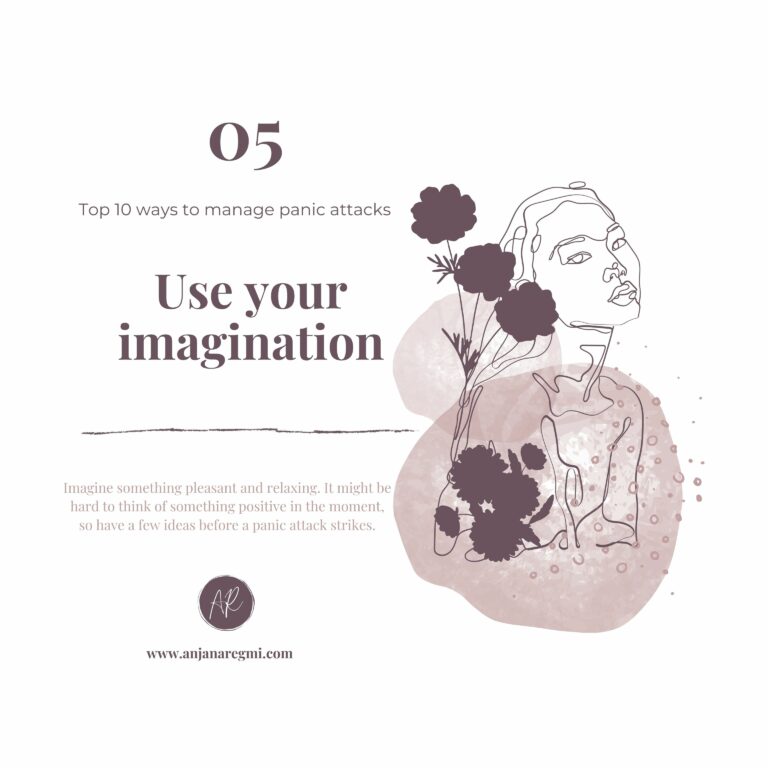
www.anjanaregmi.com
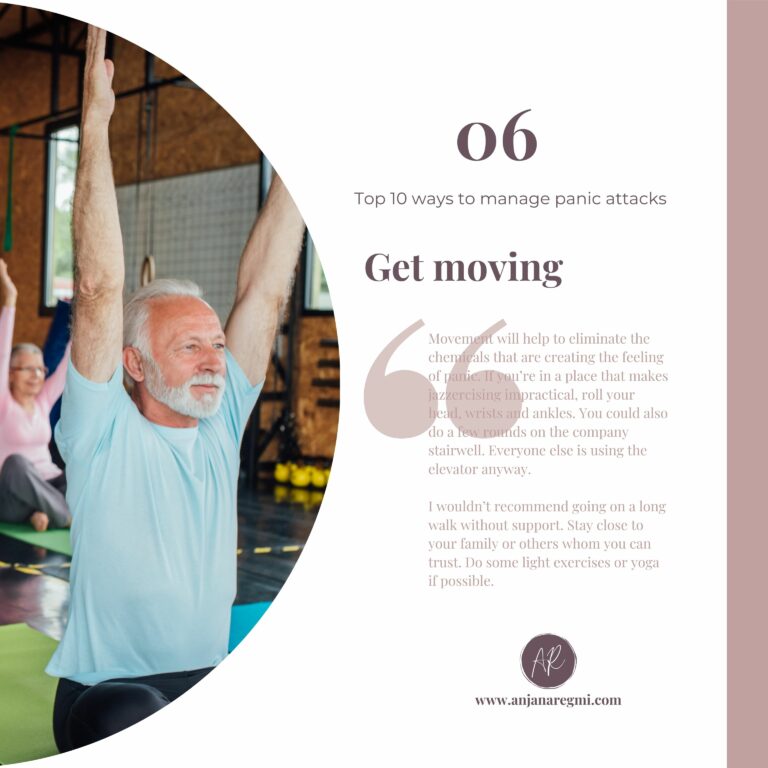
www.anjanaregmi.com
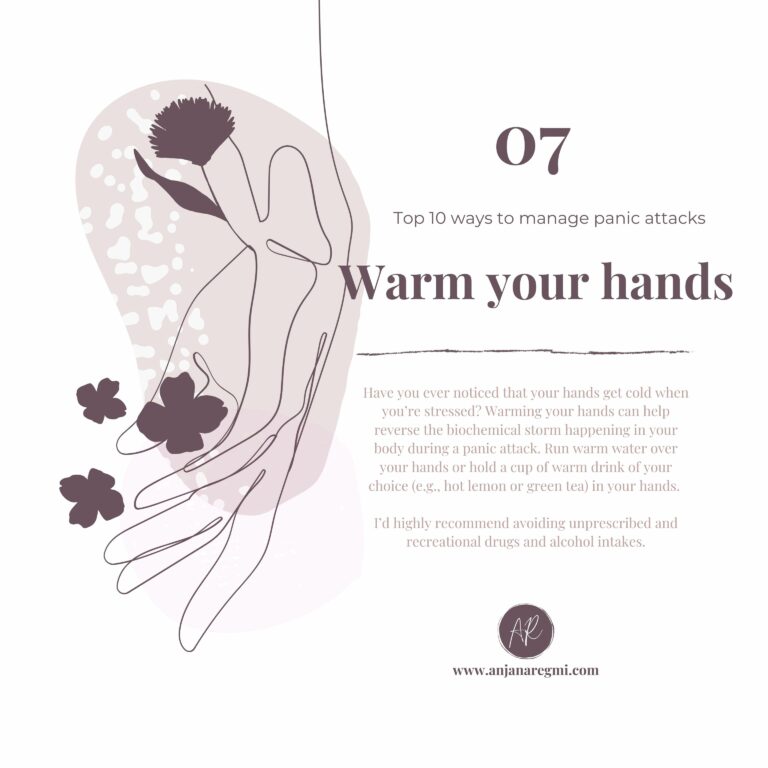
www.anjanaregmi.com
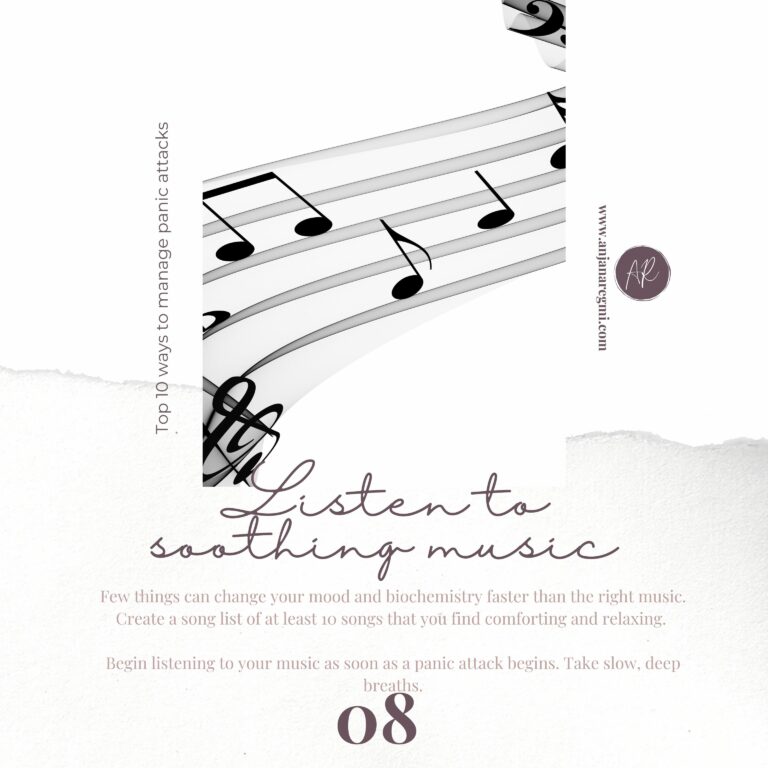
www.anjanaregmi.com
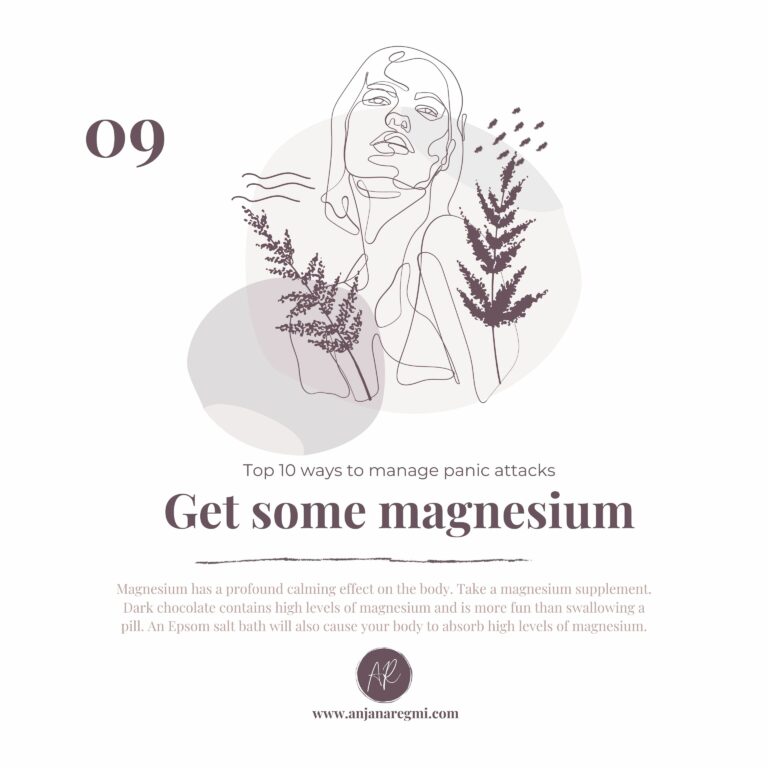
www.anjanaregmi.com
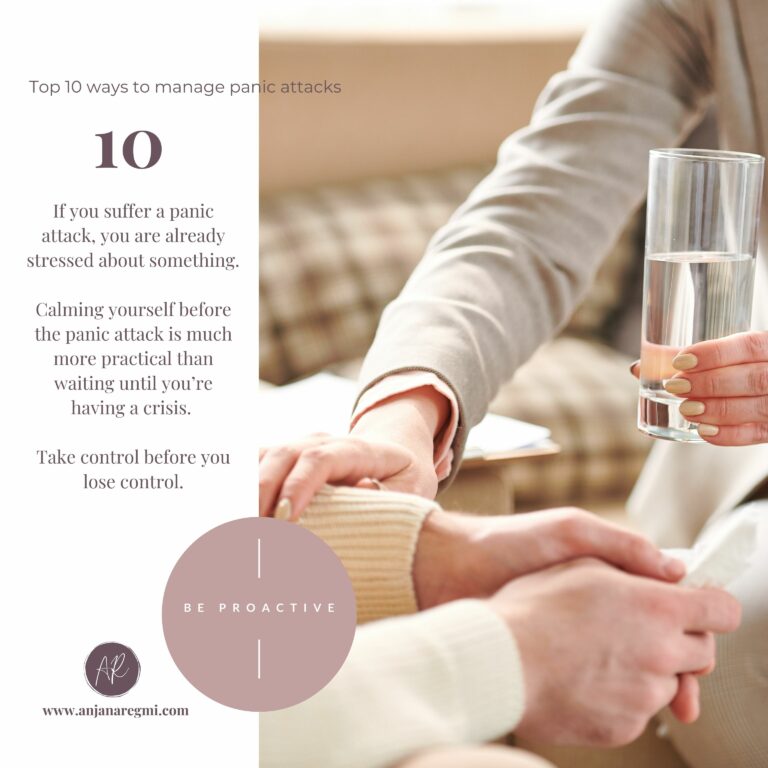
www.anjanaregmi.com
Audio version with an additional information
In short, panic attacks are frightening and uncomfortable. The symptoms can include breathlessness, rapid heartbeats, sweating, shaking arms and legs, and lightheadedness. You can control your panic attacks and return to a normal physiology. Do your best to prevent panic attacks from occurring in the first place. If a panic attack does strike, use these strategies to help subdue it. Seek medical help as soon as possible, especially if you are having suicidal thoughts, struggling to work, daily tasks or maintain relationships.
To learn more
on how you can work with me on managing your emotions and feelings using Cognitive Behaviour Therapy (CBT) and heal from your past experiences or childhood trauma using Matrix Therapies that will help you learn self-help techniques as well, click here.
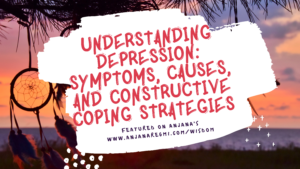
Understanding Depression: Symptoms, Causes, and Constructive Coping Strategies – 2303
Although depression can seem overwhelming and difficult to tackle, there is hope. It’s important for those who need help not to feel ashamed or embarrassed, as it is a common condition that affects many people. It is possible to get better and find happiness again. This begins with understanding what is depression, it’s symptoms and causes.

Four attachment styles and adult relationships – which one is yours? – 2302
Are you familiar with attachment styles? These are psychological theories that suggest the way we form relationships is influenced by our early experiences. In this blog post, I’m going to explore how different kinds of attachment styles can impact our behavior in relationships. Read on to learn more!
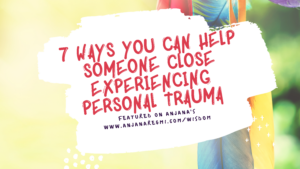
7 Ways You Can Help Someone Close Experiencing Personal Trauma #2301
Through your support, the person experiencing personal trauma will better understand and develop necessary coping strategies while they navigate complex feelings. Learn 7 ways you can help someone close experiencing personal trauma.
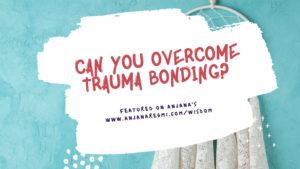
Can You Overcome Trauma Bonding? #2202
This article explores how trauma bonding can occur, why it’s bad for your mental health, and how to stop the process from happening. If you are currently experiencing this problem or are looking to learn more about it, then read on!

What is Trauma Bonding? #2201
Are you feeling like you’re stuck in a rut? Anjana Regmi’s trauma-informed cognitive behaviour therapy service can help you break free and live a better life. Through individual or group sessions, she’ll help you understand your thoughts and emotions, learn coping mechanisms, and set goals to improve your wellbeing. With her guidance, you’ll be on your way to living a happier and healthier life.

Self-Leadership: An Escape From the Ordinary World #2116
You’ll feel like you can handle anything as your brain becomes capable of understanding and dealing with the complexities of life. How do you practice self-leadership in developing a positive mindset that helps you to heal and thrive?

